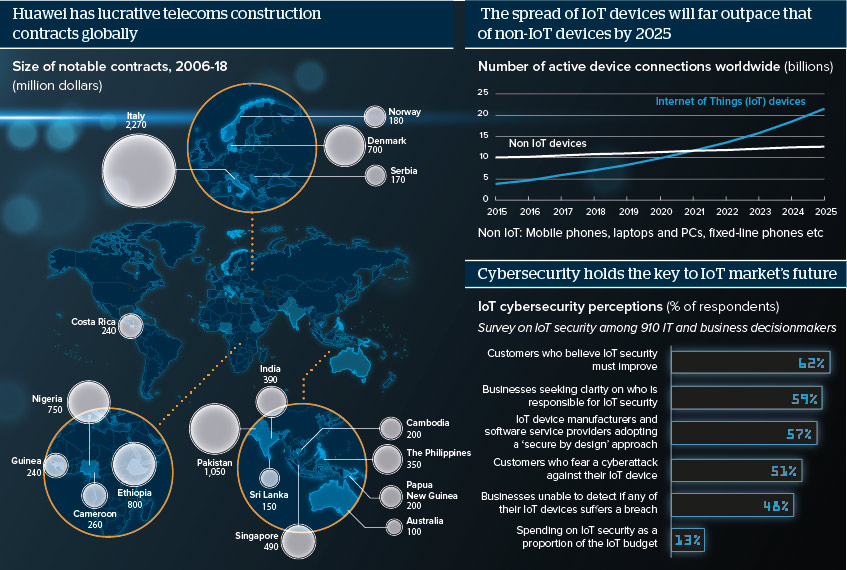Huawei’s fate is inseparable from Europe’s geostrategy
Huawei has established a robust presence globally, especially in Europe, Asia and Africa
Updated: Mar 27, 2019
Source: China Global Investment Tracker, The American Enterprise Institute and The Heritage Foundation; The State of IoT Security 2018, Gemalto; IOT Analytics
Outlook
Few countries have banned Huawei from their 5G telecoms network: the United States, Australia, New Zealand and Japan. Many more fear the cybersecurity risks of contracting a firm with opaque links to Beijing; these concerns weigh on policymakers in Denmark, Germany, Italy, Norway, Poland and the United Kingdom.
Beyond North America, Europe will lead 5G rollouts, which are crucial to the spread of connected devices, especially IoT devices and automated vehicles. Securing these devices from malicious state and non-state cyberactors is a priority for Europe -- but so is keeping China, a critical trade and investment ally, on side.
Impacts
- It is not clear how a Germany-China ‘no-spy deal’ could be forged or enforced to alleviate cybersecurity risks.
- Retaliatory actions by China against countries opposing Huawei will reinforce suspicions over links between the state and the firm.
- A second term for US President Donald Trump, further straining transatlantic ties, would make Europeans more averse to alienating China.
- Many parts of Asia, Africa and the Middle East will transition to 4G by 2025, but will note Huawei’s cybersecurity record.
- A particular concern will be the poor quality control of Huawei’s supply chain.
See also
- Geostrategic rifts fuel corporate competition on 5G - May 10, 2019
- Europe is likely to embrace Huawei but selectively - Apr 26, 2019
- Huawei will cautiously welcome Europe’s course on 5G - Apr 18, 2019
- EU green light to Huawei leaves much unresolved - Mar 27, 2019
- Beijing and Washington play their strengths in 5G race - Feb 4, 2019
- More graphic analysis
